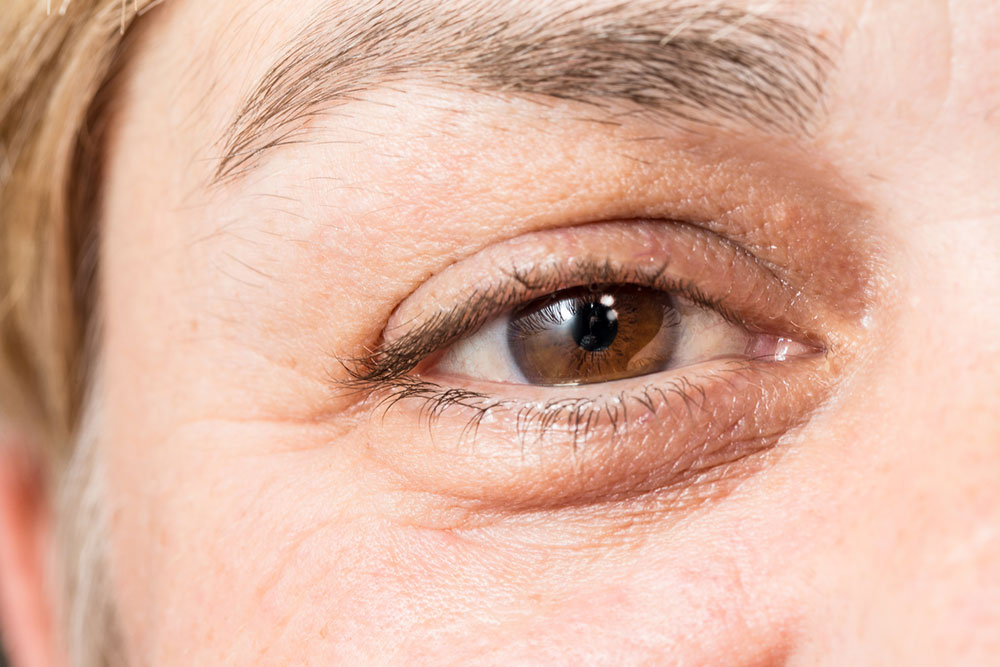Causes, symptoms, and management of thyroid eye disease

Thyroid eye disease (TED) is an autoimmune condition that affects the eyes, causing inflammation and damage to the tissues, muscles, and connective and fatty tissues in the region. Also known as Graves’ ophthalmopathy or Graves’ orbitopathy, TED typically develops in those with Graves’ disease—an autoimmune disorder causing overactivity of the thyroid gland. But TED can also develop in those with other thyroid disorders and even those without any such dysfunction.
Causes
Here are a few causes and risk factors of TED:
Gender: Hyperthyroidism develops more in women than men, so as a result, thyroid eye disease also is more common among women than men—16 cases per 100,000 women and 2.9 per 100,000 men.
Genetics: This plays an important role in the incidence of TED. Those with the condition may carry the genes for it or could have a genetic susceptibility to it. Someone predisposed to this disease may only experience symptoms once the condition is triggered due to certain circumstances.
Selenium deficiency: Individuals with low levels of the mineral selenium in their blood are also at risk of developing this disease.
Graves’ disease: The immune system of those with Graves’ disease creates an abnormal antibody called thyroid-stimulating immunoglobulin that mimics the function of the thyroid-stimulating hormone produced by the pituitary gland. These abnormal antibodies affect the cells surrounding the eyes, causing the symptoms associated with TED.
Other autoimmune conditions: Those dealing with other autoimmune diseases like rheumatoid arthritis and type 1 diabetes are also susceptible to developing TED.
Environmental factors: Stress, infections, and hormonal fluctuations could also trigger or worsen TED symptoms in those who are predisposed to getting this disease.
Symptoms
Here are a few common symptoms of TED:
– Bulging eyes or staring eyes (exophthalmos)
– Undereye bags
– Eye redness, irritation, and a feeling of grittiness like sand in the eyes
– Diplopia or double vision
– Swelling, inflammation, and difficulty closing the eyes
– Sensitivity to light
– Eye pain associated with eye movement
– Blurred vision
– Reduced vision
– Delayed movement of the eyelid or lid lag
– Restricted eye movements
– Dry eyes
– Watery eyes
Management options
Controlling and managing thyroid dysfunction—hyperthyroidism or hypothyroidism—is a priority when managing TED. Additionally, the following options can help:
– As TED causes dry eyes and a gritty feeling, lubricating the eyes with eye drops or ointments can help relieve dryness and irritation.
– Protecting eyes with appropriate eyewear can help alleviate discomfort from light sensitivity and pollution. If one of the symptoms is difficulty in closing the eyes completely, wearing an eye patch at night can help reduce corneal exposure.
– Applying warm compresses to the eyes can help with the pain, reduce swelling, and reduce the feeling of dryness by promoting tear production.
– Keeping the head higher than the body reduces swelling and pressure around the eyes when lying down. The elevated position helps improve lymphatic drainage and reduce fluid retention in the orbital tissues.
– As TED can cause double vision, a healthcare provider could recommend prism glasses.
– Additionally, stress management techniques and nutritional counseling can help in managing the condition and its symptoms.
Nevertheless, a licensed healthcare provider should always be consulted for the management of thyroid eye disease so it can be tailored to individual needs.

